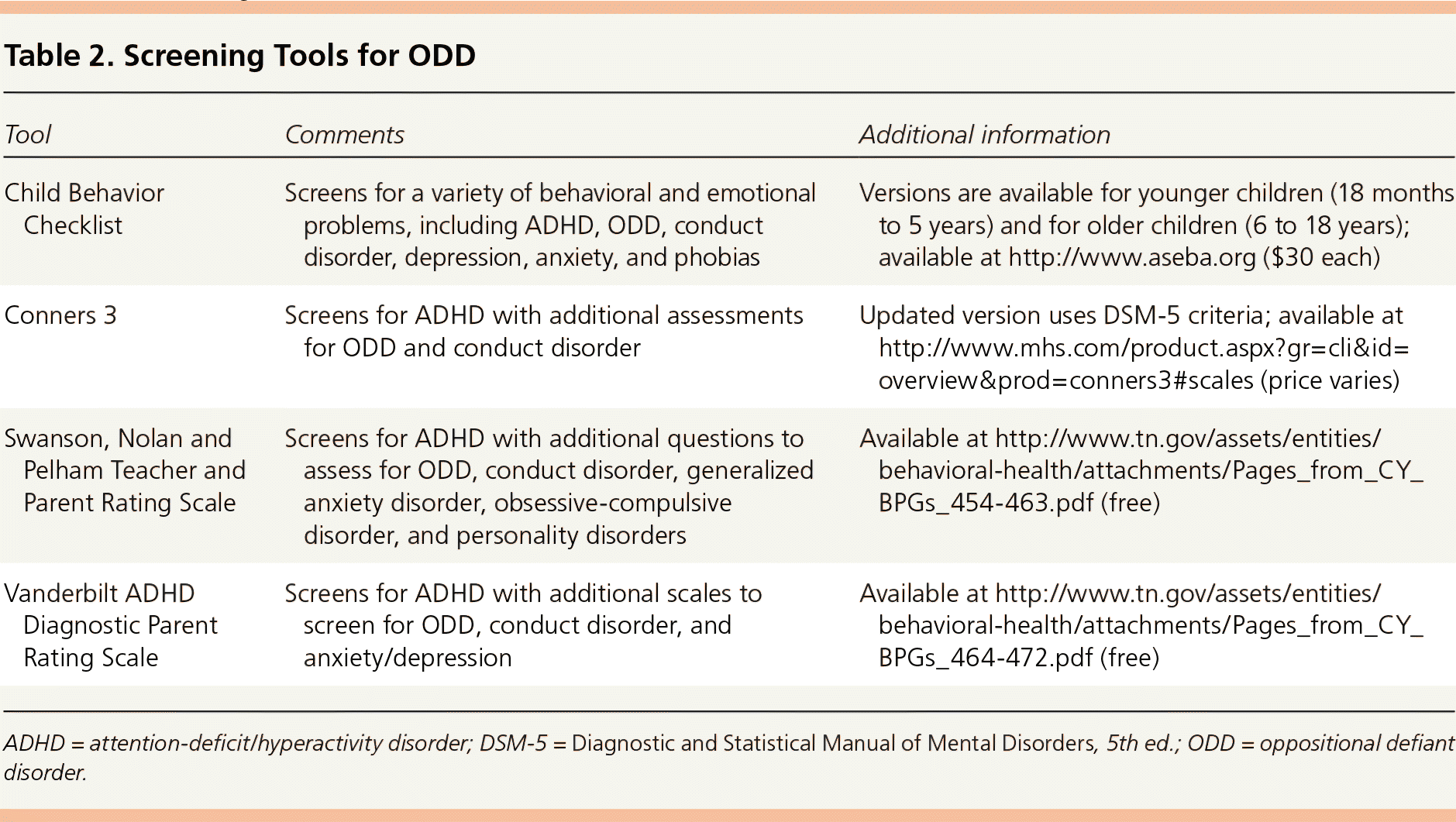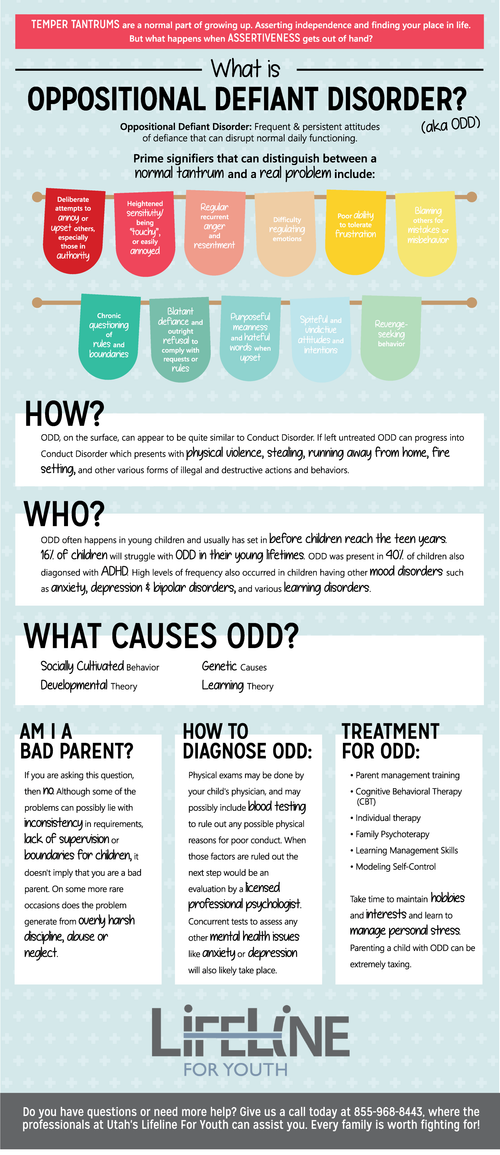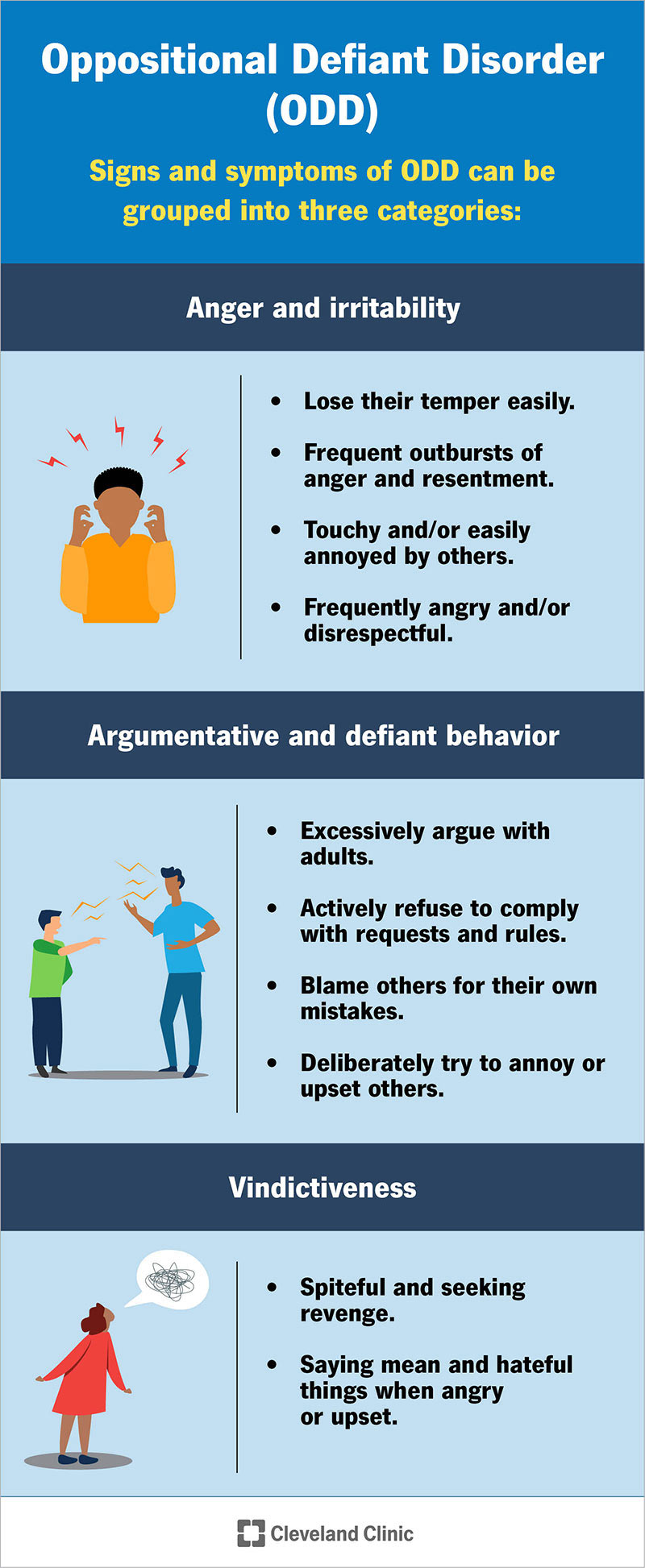Impressive Tips About How To Deal With Oppositional Defiant Disorder

It usually starts to develop in children younger than eight years old and almost always develops by.
How to deal with oppositional defiant disorder. Treatments typically include support for parents and the school, combined with individual therapy, most often using cognitive behaviour therapy (cbt) to improve anger management skills and. Because odd often happens along with other disorders, it is important to have a complete evaluation and make a treatment plan to care for your whole child. Severe, which means that some symptoms occur in 3 or more settings.
Odd is more than just normal childhood tantrums, and the frequency and severity of odd causes difficulty at home and at school. Oppositional defiant disorder (odd) is a psychiatric disorder that typically emerges in childhood, between ages 6 and 8, and can last throughout adulthood. Provide positive attention establish clear rules create a behavior plan be consistent with consequences avoid power struggles parenting a child with oppositional defiant disorder can be a challenge.
4 ways to manage oppositional defiant disorder in children. Kids with oppositional defiant disorder argue, refuse to follow directions, and find joy in irritating others. They have a pattern of angry, violent, and disruptive behaviors toward parents, caretakers, and other authority figures.
1 identify symptoms of odd. To successfully support a child with oppositional and defiant behaviours we want to: A pattern of anger and defiance against authority could be a sign of oppositional defiant disorder (odd).
If you would like to sow a seed please see the ways to give below. Oppositional defiant disorder (odd) is a childhood disorder that affects anywhere from 6 to 10 percent of chil. Oppositional defiant disorder often causes significant issues at home, school, and with peers.
Odd also includes being spiteful and seeking revenge, a behavior called vindictiveness. How do i take care of my child with oppositional defiant disorder? Options range from parent management training to individual therapy.
Parenting a child who has very defiant behavior or who is diagnosed with oppositional defiant disorder (odd) is different than parenting a “typical kid”. Children with odd tend to exhibit certain behaviors that identify odd, usually beginning in preschool and almost always presenting before the early teen years. Adults with oppositional defiant disorder (odd) display a pattern of negative, hostile, and defiant behavior that lasts at least six months and includes four (or more) of the following symptoms:
If you think your child might have odd, start by talking with your gp about a referral to a paediatrician ,. If your child has oppositional defiant disorder, aside from getting them professional care, you can help them and yourself in the following ways:
Treatment should involve a collaborative approach between the child, their parents, their school, and their community. Coping strategies to deal with oppositional defiant disorder coping strategies associated with the handling of oppositional defiant disorder depend on different factors. This pattern also must be present in multiple settings and occurs almost daily in children younger than 5, and at least once a week in older children.
(by 6 or 7 years old, most children. Oppositional defiant disorder (odd) is a disruptive behavior disorder that emerges during childhood or adolescence and is characterized by persistent angry or irritable mood, unruly and. These children require smart, specific oppositional defiant disorder strategies — and more than their fair share of patience.


















